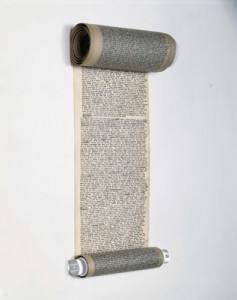 An idea is like a wild animal. At first, I hear it scratching and chittering in the attic. I can poke my head up there to see what it is, but if it’s not ready to be seen, it’ll scurry away into the shadows. The best I can do is let it nest up there and wait for it to come out of hiding.
An idea is like a wild animal. At first, I hear it scratching and chittering in the attic. I can poke my head up there to see what it is, but if it’s not ready to be seen, it’ll scurry away into the shadows. The best I can do is let it nest up there and wait for it to come out of hiding.
If I don’t poke at the wild idea, it’ll get comfortable. It might grow. Maybe I’ll leave some food out for it, coax it out into the light. If it’s a healthy idea, and I don’t force the issue, it’ll come out into the garden in its own time.
Assuming I haven’t startled it by shouting or trying to trap it in a cage, the wild idea will step out into the sun blinking, as curious about me as I am about it. I can see what it is at last. I can estimate its weight, the sharpness of its teeth, the velvet of its fur.
This is the tricky part. I have to figure out the approach.
I circle, examining it from every side. I step forward, change my mind, and step back.
Maybe I’ll come in from the left, say, going with a third person approach. I croon to the wild idea in a soft voice, let it eat from my hand, then slip a leash over its head. Sometimes this works well and it walks by my side, docile, yet still exotic.
That doesn’t always work, though. Maybe the left was a poor choice. The wild idea is blind in that eye and startles when I appear out of nowhere. It might dash off, but more likely, I’ll grab it by the scruff of the neck and wrestle the leash over its head.
You can’t force a wild idea into submission. It’ll get sluggish. It’ll choke on its tether. It’ll wander around in circles making pathetic wheezing noises. The only thing to do is release it, start over, and come at it from another angle until I get it right.
From the right this time as an omniscient narrator? Maybe straight on, first person? I must go softly. The idea is skittish.
Sometimes an idea is too wild, too prickly, or even too domesticated. No angle feels right. The idea flops over on its back, sides heaving. I try to drag it where I want it to go. It snuffles and goes silent.
It’s not dead, but it might as well be. I can do nothing with it.
Let it go, Rach. Just let it go.
There’s always some new creature skittering in the attic, waiting for me to offer it table scraps. If I can find the right approach, it’ll follow me to the end of the story.
